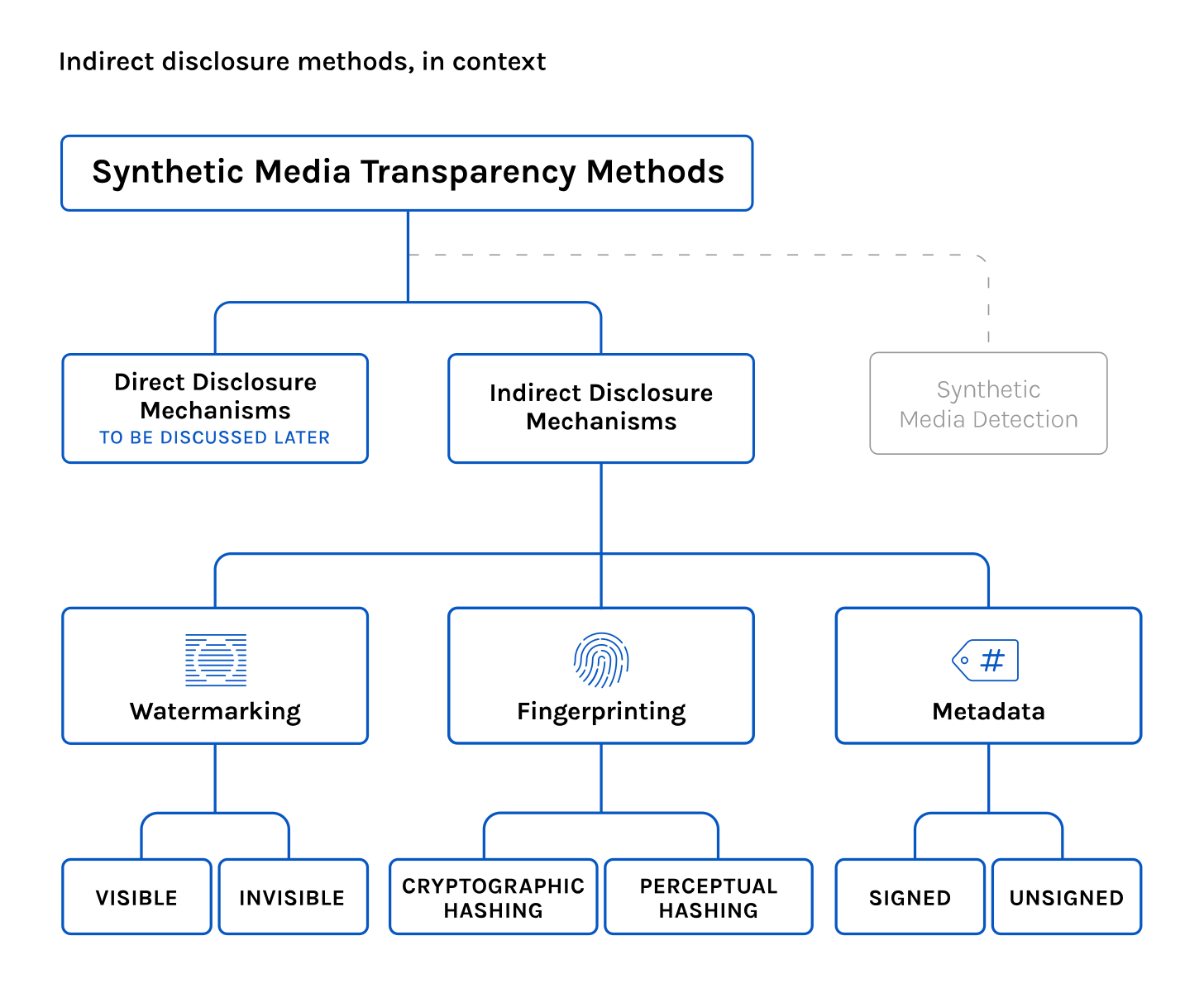Suddenly, Everyone Is Adding Watermarks to AI Generated Media
Plus: FTC Targets Clones; Music Rights Gold Rush Resumes; Radio Still Rules
With election season in full swing in the U.S. and European Union, and concern growing over deep-fake and AI-manipulated images and video targeting politicians as well as celebrities, AI heavyweights are starting to come around to supporting for industry initiatives to develop and adopt technical standards for identifying AI-produced content.
At last month’s World Economic Forum in Davos, Meta president of global Affairs Nick Clegg called efforts to identify and detect AI content “the most urgent task” facing the industry. The Facebook and Instagram parent began requiring political advertisers using its platforms to disclose whether they used AI tools to create their posts late last year. But it is also now gotten behind the technical standard developed by the Coalition for Content Provenance and Authenticity (C2PA) for certifying the source and history of digital content.
Earlier this month, Google said it will join the C2PA steering committee, throwing its considerable weight behind the initiative. “a critical part of our responsible approach to AI involves working with others in the industry to help increase transparency around digital content,” Google VP of trust and safety Laurie Richardson said in announcing the move. “This is why we are excited to join the committee and incorporate the latest version of the C2PA standard.”
Also this month, OpenAI said it would begin adding C2PA watermarks to content produced by its DALL-E 3 image generator.
Meta, Google and OpenAI are also involved in the Partnership on AI, a coalition of academic, industry and non-profit organizations developing fairness and ethical best practices for AI, including a standardized taxonomy and glossary for AI transparency models.
The C2PA standard is widely used in the news media to identify photographs and other content. But the Adobe-led coalition has struggled to get the major AI companies on board.
Now, though, under pressure from the White House as well as the EU, and with Congress and increasingly focusing its legislative lights on deep fakes, that resistance appears to be giving way. In public, at least.
ICYMI
FTC: Attacking The Clones
Speaking of deep fakes, the Federal Trade Commission this week issued a supplemental notice of proposed rulemaking that would prohibit the impersonation of individuals. The commission recently finalized the Government and Business Impersonation Rule, banning the use of government seals and corporate logos by scammers or falsely implying an affiliation such as spoofing a .gov email address. The proposed revision would “declare it unlawful for a firm, such as an AI platform that creates images, video, or text, to provide goods or services that they know or have reason to know is being used to harm consumers through impersonation.” The supplemental NPRM comes in response to a surge in complaints the agency said it has received concerning impersonation fraud. If adopted, the extension could provide a new cause of action for artists and celebrities victimized by deep fakes. It would also mark a significant step in the FTC’s ongoing bid to be a major player in the emerging regulatory regime around AI.
Song Remains the Same
After being mothballed for a while by rising interest rates, the market for song catalogs is getting its groove back. This week, Irving Azoff’s Iconic Artists Group acquired Rod Stewart’s catalog for close to $100 million, after securing $1 billion in new capital from HPS Investment Partners. The deal includes Stewart’s publishing and master recording rights, and covers songs from his solo career as well as from his time with Faces and The Jeff Beck Group. Deal follows Sony Music’s acquisition of 50% of Michael Jackson’s publishing and master rights from his estate for $600 mil. Meanwhile, Cinq Music banked an additional $250 large from parent Go Digital Group to buy music rights, HarbourView scored $100 million and Kobalt and Morgan Stanley raised a new $700 million fund to buy rights back in November. Even indie artists’ catalogs are attracting capital in the form of a $90 million raise this week by Duetti.
Don’t Touch That Dial
Edison Research is out with its final quarterly update to its Share of Ear report for 2023, which shows AM/FM radio (mostly news and talk) holding on to its spot at the top of the hit parade, claiming 36% of all audio listening in the U.S. Streaming music, including dedicated music services (20%) and YouTube (14%), come in just behind radio, with a combined 34%, followed by podcasts at 11%.
Notable
Can Large Language Models Understand Context?
In the ever-evolving landscape of natural language processing (NLP), the quest to bridge the gap between machine interpretation and the nuanced complexity of human language continues to present formidable challenges…MarkeTech Post
The Birth of a New Photography Standard
On January 14, 2014, The Associated Press terminated its relationship with Pulitzer-winning photographer Narciso Contreras. The reason? He purposely erased a video camera visible on the bottom left of an image of the Syrian war he submitted to AP for distribution…Kaptur
No ‘GPT’ Trademark for OpenAI
The U.S. Patent and Trademark Office has denied OpenAI’s attempt to trademark “GPT,” ruling that the term is “merely descriptive” and therefore unable to be registered. It’s a blow to OpenAI’s branding, but don’t expect its competitors to start releasing their own version of the ubiquitous chatbot…TechCrunch




